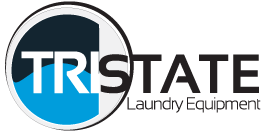- Check each machine’s air connection, which is typically into a coalescent filter and an air pressure regulator. Ninety percent of the time, the filters we see are leaking air from the drain. This is easily solved by either disassembling and cleaning or by a kit from the maker for a rebuild. These kits contain the needed seals which have gone bad; the same applies to the regulator.
- Examine each machine by closing off the air supply to the machines then opening only the air to the machine you are checking for leaks. This will make it easier to pinpoint the location of the leak. If the machine has vacuum or blower motor, you’ll need to either turn them off or disconnect the power to the motor so the machine can function, and you can hear and find the leaks more easily. Specifically check fittings and cylinders as they are the most common locations for leaks. Once they’ve been located, you’ll need fittings, air tubing, and cylinder repair kits to make the repairs. Repeat the process on every machine until they’ve all been thoroughly examined, identified as leak-free, or all repairs have been made.
If your business is struggling with air pressure issues, contact Tri-State Laundry Equipment at 1.866.885.5218. We are glad to help.



